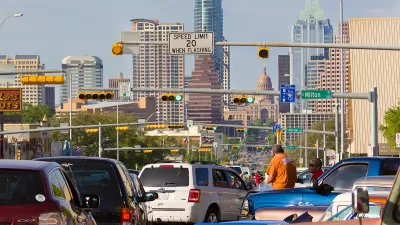As residential real estate sales set new highs in Bedford-Stuyvesant, more and more local families are being driven to the city's homeless shelters despite prevention efforts. What can city leaders do to ensure economic diversity?
"Those unburdened by skepticism about gentrification argue that it is an ample elevator, lifting up everyone: with renovations come the need for those to lay the subway tiles; with enotecas come the need for those to serve the verdicchio. And yet how often does the waitress pouring the wine in a marginal neighborhood look like someone rescued from grim financial despair rather than a slightly younger, and often more fashionable, version of the person drinking it?" asks Ginia Bellafante. "What has happened in Bedford-Stuyvesant does not easily comply with an optimistic view of transformation."
In recent months, million dollar sales have set new records in the Brooklyn neighborhood while the area continues to struggle with high homelessness. A program was initiated in 2004 to help prevent at-risk families from entering the city's shelter system, "but it has had only negligible success," she notes.
"Is the current understanding of prevention too narrow?" asks Bellafante. "Do neighborhoods need to be stabilized long before so many families find themselves so close to the precipice? Reason would seem to say yes. The city’s self-analysis, conducted by various academics, places little credence in the impact of the housing market on homelessness. But a report released last month by the Institute for Children, Poverty and Homelessness, a research and policy group, presents a convincing set of facts to defend the notion of causality."
FULL STORY: Gentrifying Into the Shelters

Planetizen Federal Action Tracker
A weekly monitor of how Trump’s orders and actions are impacting planners and planning in America.

Map: Where Senate Republicans Want to Sell Your Public Lands
For public land advocates, the Senate Republicans’ proposal to sell millions of acres of public land in the West is “the biggest fight of their careers.”

Restaurant Patios Were a Pandemic Win — Why Were They so Hard to Keep?
Social distancing requirements and changes in travel patterns prompted cities to pilot new uses for street and sidewalk space. Then it got complicated.

Albuquerque Route 66 Motels Become Affordable Housing
A $4 million city fund is incentivizing developers to breathe new life into derelict midcentury motels.

DC Area County Eliminates Bus Fares
Montgomery County joins a growing trend of making transit free.

Platform Pilsner: Vancouver Transit Agency Releases... a Beer?
TransLink will receive a portion of every sale of the four-pack.
Urban Design for Planners 1: Software Tools
This six-course series explores essential urban design concepts using open source software and equips planners with the tools they need to participate fully in the urban design process.
Planning for Universal Design
Learn the tools for implementing Universal Design in planning regulations.
Heyer Gruel & Associates PA
JM Goldson LLC
Custer County Colorado
City of Camden Redevelopment Agency
City of Astoria
Transportation Research & Education Center (TREC) at Portland State University
Camden Redevelopment Agency
City of Claremont
Municipality of Princeton (NJ)





























